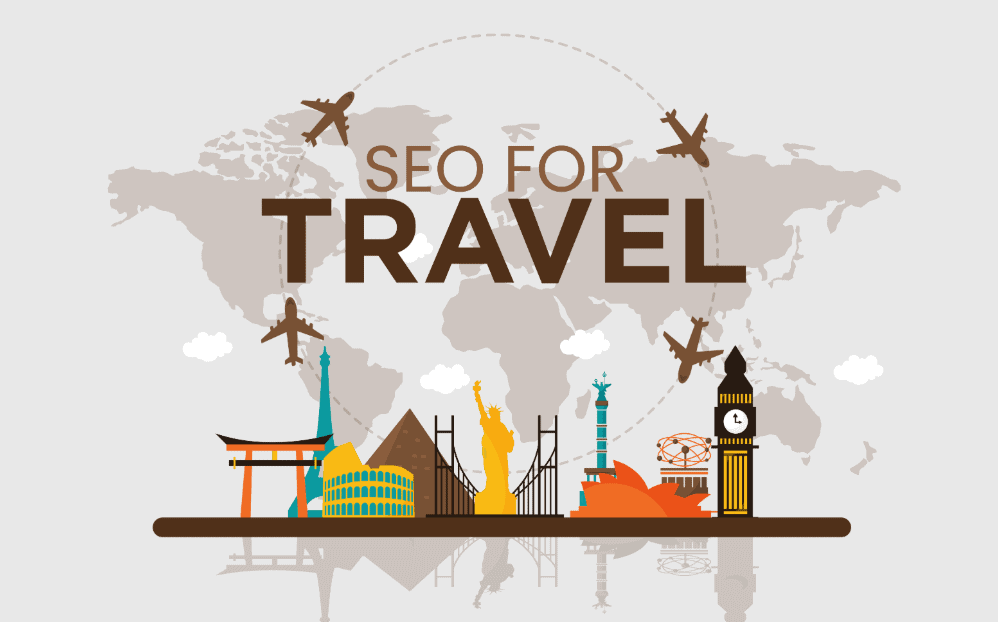In the dynamic world of KD Solutions digital marketing in Ahmedabad, India. Search Engine Optimization (SEO) continues to evolve, and the travel industry is no exception. As we step into 2025, understanding and adapting to the latest SEO trends is crucial for travel businesses aiming to stay ahead of the game. This article explores the latest travel SEO updates and how you can leverage them to boost your online visibility.
- User-Centric Content is King
The core of SEO success in 2025 is user-centric content. Google’s algorithm updates increasingly prioritize content that provides real value to users. For the travel industry, this means creating informative, engaging, and authentic content that answers travelers’ questions and inspires action.
Action Points:
- Write comprehensive travel guides, destination reviews, and tips.
- Incorporate user-generated content, like reviews and testimonials.
- Use storytelling to make your content relatable and memorable.
- Voice Search Optimization
With the growing popularity of smart speakers and voice assistants, optimizing for voice search is no longer optional. Travelers often use voice search for quick queries like “best hotels near me” or “cheap flights to Bali.” Adapting your SEO strategy to cater to conversational and question-based queries can give you a competitive edge.
Action Points:
- Use natural language and long-tail keywords.
- Focus on local SEO to capture nearby travelers.
- Create an FAQ section addressing common travel-related questions.
- Mobile-First Indexing
In 2025, Google continues to prioritize mobile-first indexing, meaning your website’s mobile version is the primary determinant of your ranking. For travel businesses, where users often browse on mobile devices, ensuring a seamless mobile experience is essential.
Action Points:
- Optimize your website for mobile with a responsive design.
- Improve page loading speed using tools like Google Page Speed Insights.
- Ensure easy navigation and clear call-to-actions (CTAs) on mobile screens.
- Enhanced Focus on E-A-T (Expertise, Authoritativeness, Trustworthiness)
E-A-T remains a critical factor for SEO ranking in 2025. Travel websites need to build credibility by showcasing expertise, authority, and trustworthiness. This is particularly important for content related to health and safety, travel regulations, and destination-specific advice.
Action Points:
- Highlight author credentials and expertise in your blog posts.
- Partner with reputable travel influencers and bloggers.
- Use secure (HTTPS) protocols to ensure website security.
- AI-Powered Personalization
Artificial Intelligence (AI) is transforming SEO strategies by enabling highly personalized user experiences. AI tools can analyze user behavior to deliver customized content, recommendations, and offers.
Action Points:
- Use AI tools to understand user preferences and predict behavior.
- Implement personalized email marketing campaigns.
- Leverage chatbots to provide instant, tailored responses.
- Visual and Video Content Dominance
Visual content, especially videos, continues to dominate the travel SEO landscape. Platforms like YouTube and Instagram are pivotal for showcasing destinations and engaging users.
Action Points:
- Create high-quality videos of destinations, travel itineraries, and experiences.
- Use descriptive titles, tags, and captions to optimize video content.
- Incorporate alt texts and optimized file names for images.
- Local SEO for Travel Businesses
For travel companies targeting specific destinations, local SEO is indispensable. Travelers often search for localized information such as “top-rated restaurants in Paris” or “cab services in London.”
Action Points:
- Claim and optimize your Google My Business listing.
- Encourage satisfied customers to leave positive reviews.
- Use localized keywords and geo-specific landing pages.
- Sustainability as a Ranking Factor
Sustainability has emerged as a key focus in the travel industry. Search engines are beginning to recognize and reward businesses that prioritize eco-friendly practices.
Action Points:
- Highlight your sustainable practices on your website and marketing materials.
- Use content to educate travelers about responsible tourism.
- Partner with eco-friendly organizations and initiatives.
- Core Web Vitals and Technical SEO
Core Web Vitals—metrics that measure loading speed, interactivity, and visual stability—remain a priority in 2025. Ensuring a smooth technical foundation for your website is crucial for achieving higher rankings.
Action Points:
- Monitor and improve Core Web Vitals using tools like Google Search Console.
- Optimize server performance and use a Content Delivery Network (CDN).
- Regularly audit your website for broken links and other technical issues.
- Structured Data and Rich Snippets
Structured data helps search engines understand your content better, increasing the likelihood of appearing in rich snippets. For travel businesses, this could mean showcasing star ratings, prices, and availability directly in search results.
Action Points:
- Use schema markup for travel-specific elements like tours, hotels, and attractions.
- Test your structured data implementation using Google’s Rich Results Test.
The KD Solutions Travel SEO landscape in 2025 emphasizes user-centric content, mobile optimization, personalization, and sustainability. By staying updated on these trends and implementing the suggested strategies, travel businesses can not only enhance their online presence but also provide exceptional value to their audience. Embrace these updates, and you’ll be well-equipped to stay ahead in the ever-competitive travel SEO game.
Contact and speak to our travel digital marketing experts!




